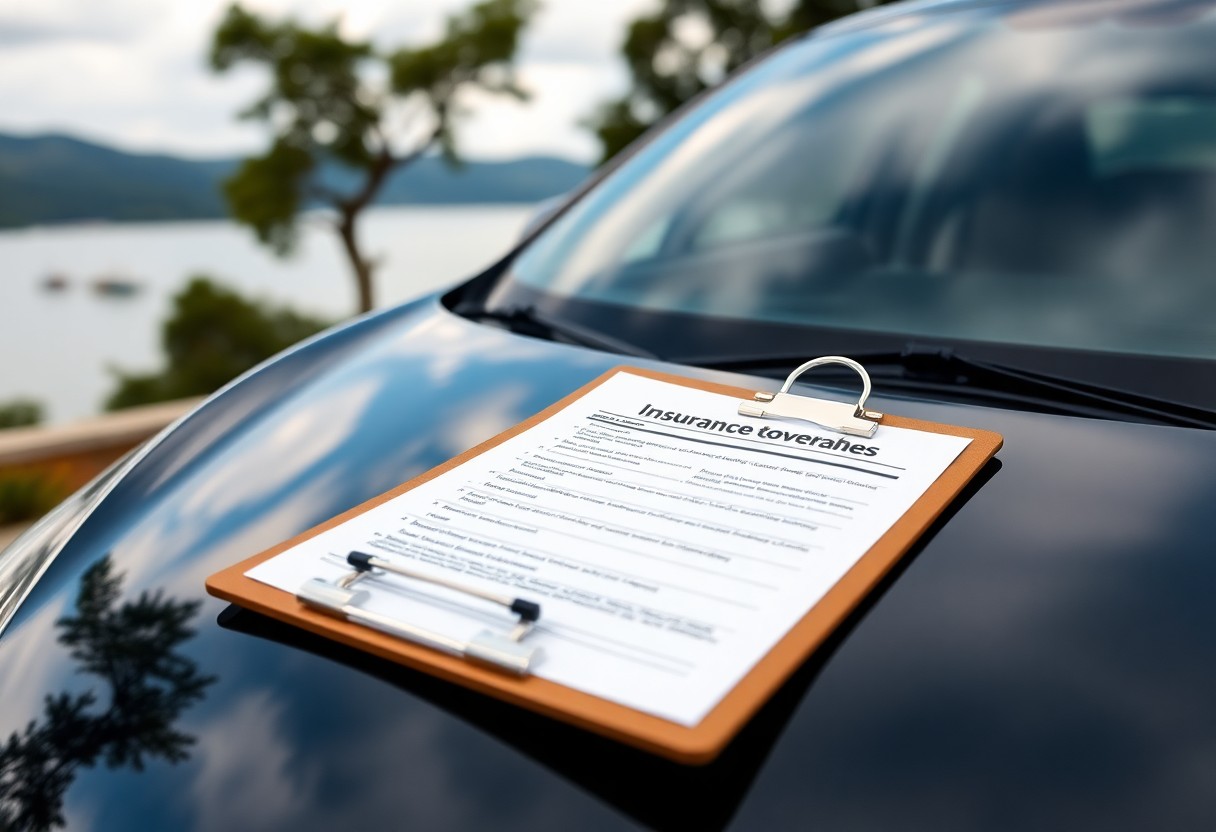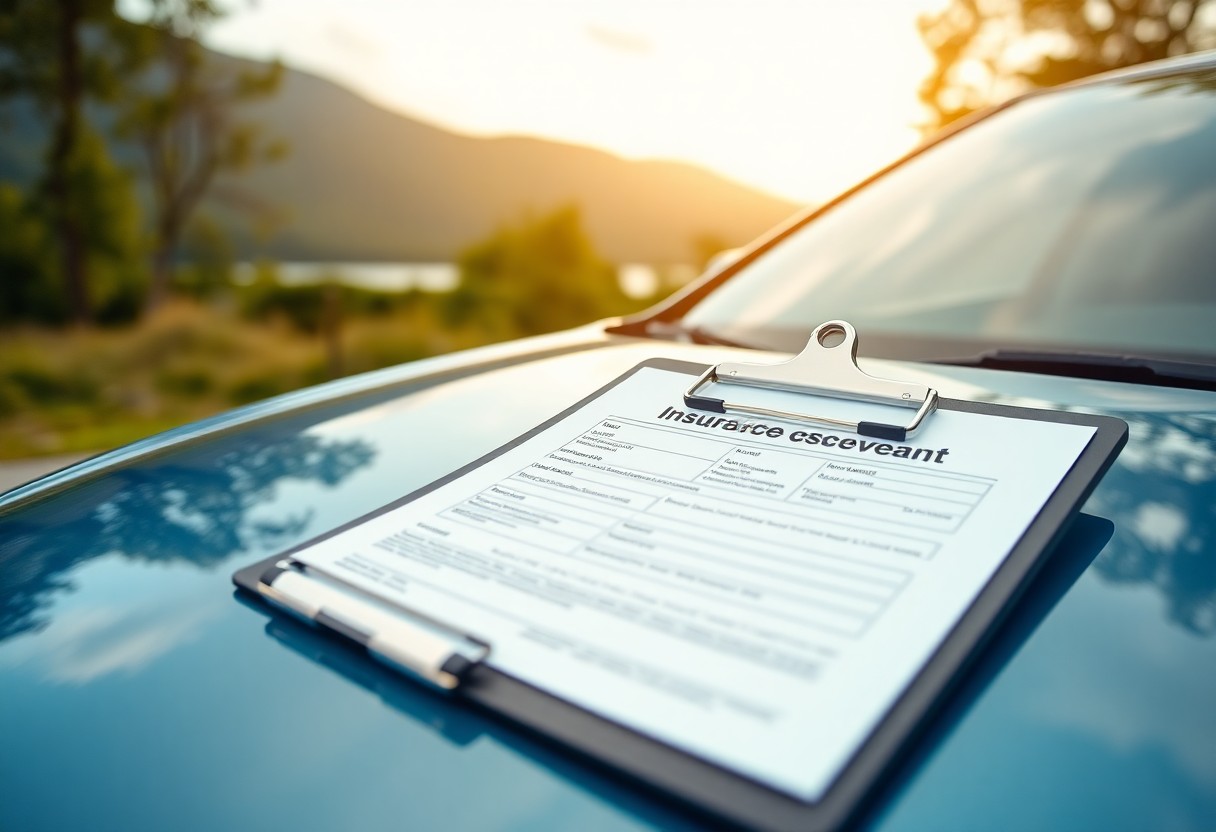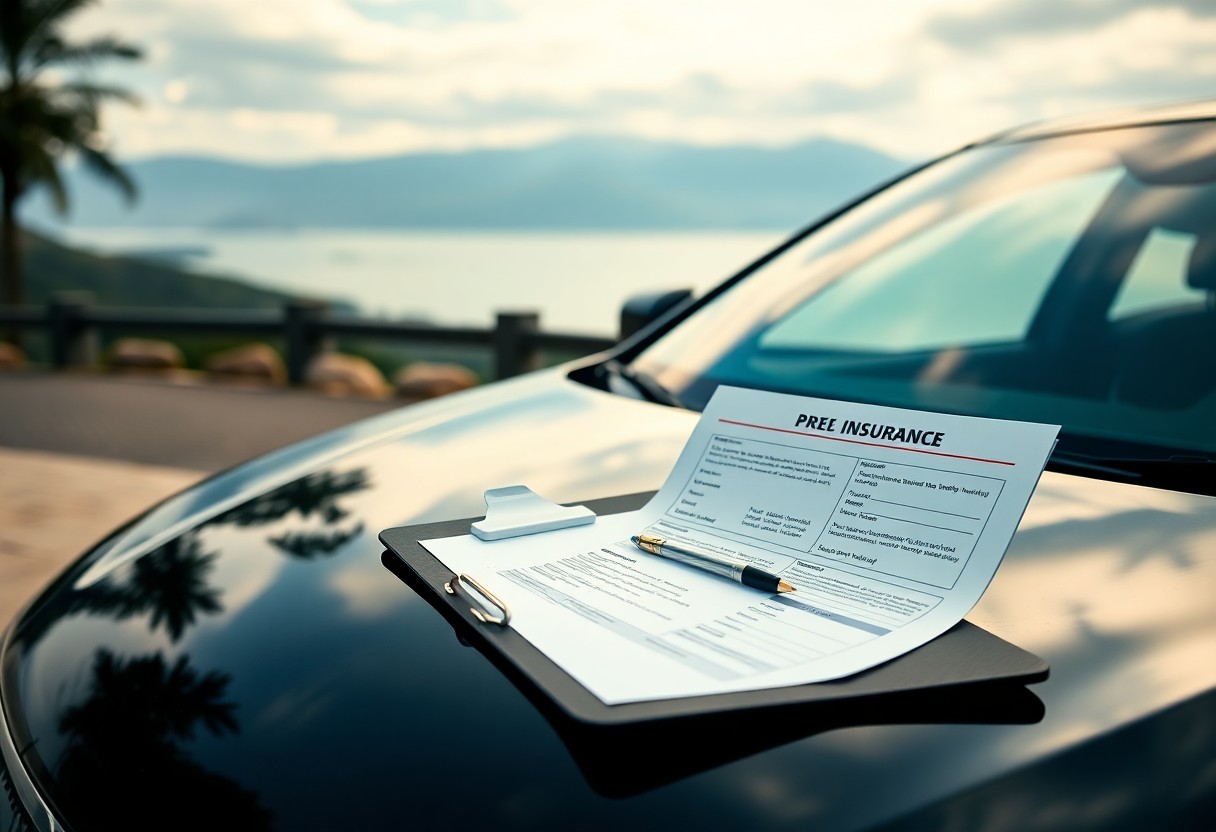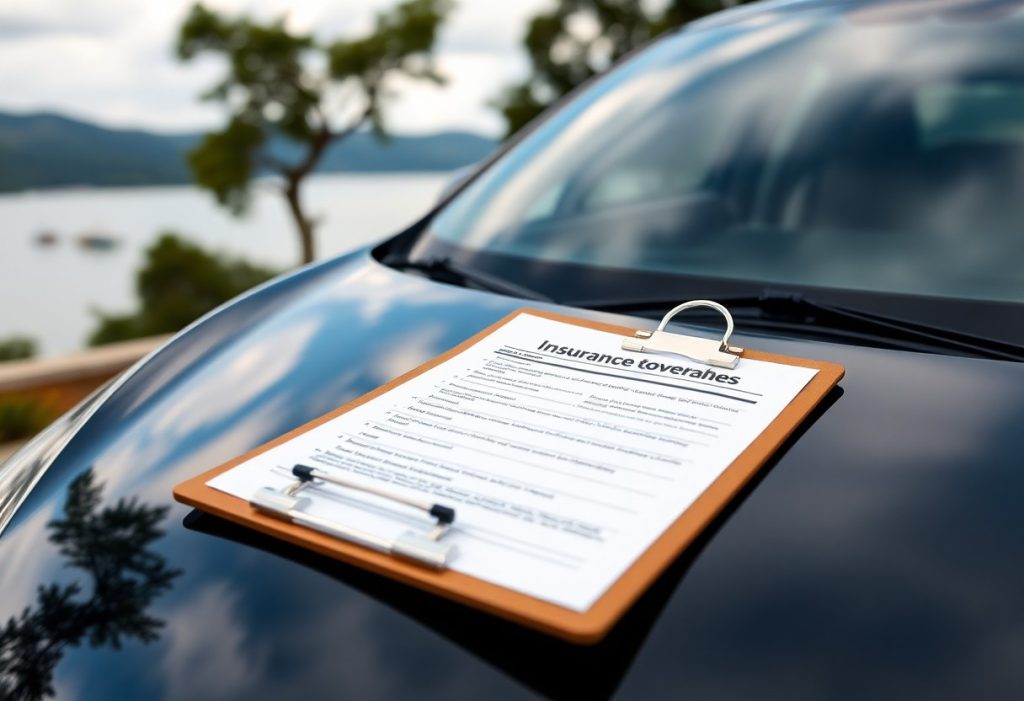Grasping the intricacies of rental car coverage is essential for effectively managing your travel budget and ensuring a hassle-free journey. While it’s possible that your current auto insurance policy may provide coverage for rental vehicles, understanding the specific details and limitations is crucial. When you rent a vehicle, your personal auto insurance could extend to deliver collision, comprehensive, and liability coverage, helping you avoid additional insurance costs from the rental agency. Nevertheless, it’s imperative to thoroughly review your policy limits, as any coverage gaps could expose you to financial risk. Prior to your next rental, reach out to your insurance provider for clarity on your coverage specifics to ensure you are adequately protected for both the rental vehicle and any associated liability concerns.

Maximizing Your Understanding of Personal Insurance Coverage for Rental Cars
While your personal auto insurance might extend to cover rental cars, the limits and types of coverage can vary widely based on the specifics of your policy. Generally, standard policies include liability, collision, and comprehensive coverage, which can provide protection while you’re behind the wheel of a rental vehicle. However, it’s important to recognize that specific exclusions may be in place, which could impact your coverage in critical situations. Therefore, taking the time to familiarize yourself with the details of your policy is essential to ensure comprehensive protection during your rental experience, allowing you to drive with confidence.
Detailed Insights into Basic Car Insurance Components
To ensure you have adequate protection on the road, standard auto insurance policies encompass several key components vital for any driver. Typically, your policy will offer liability coverage up to $100,000 for injuries per person and $300,000 per accident. Furthermore, you may also have options for collision, comprehensive, and personal injury protection. Each of these elements is designed to address various aspects of your insurance needs, allowing you to drive with peace of mind, whether in your own vehicle or a rental, ensuring that you are covered in diverse scenarios.
Key Aspects of Rental Car Coverage Demystified
When renting a vehicle, it’s generally assumed that your personal auto insurance policy will provide coverage for collision and comprehensive damages to the rental car. This existing policy can save you between $20 and $30 daily on insurance charges imposed by the rental company. However, keep in mind that higher deductibles may apply when utilizing your personal coverage for rental vehicles, which may result in out-of-pocket expenses should you file a claim. It’s crucial to weigh the potential costs and benefits to make an informed decision regarding your rental insurance.
Additionally, understanding the fundamentals of rental car coverage is vital, including the policy’s territorial limits and coverage duration. Most insurance policies typically extend coverage for rental vehicles for up to 30 days within the United States and Canada, providing protection against theft, vandalism, and weather-related damage. However, it’s essential to recognize that certain vehicle types or usage scenarios may fall outside this coverage, making it important to clarify these terms with your insurer.
Diving into the Various Types of Rental Car Insurance Available
When you rent a vehicle, it’s crucial to explore the different insurance options available to you, as they provide protection for both you and the rented car in various ways. The primary types of coverage include liability coverage, collision damage waiver, personal accident insurance, and personal effects coverage. Understanding these distinctions is critical for making informed decisions about your rental car insurance, ensuring that you choose comprehensive protection that aligns with your travel needs and circumstances.
| Insurance Type | Coverage Details |
|---|---|
| Liability Coverage | Protects against damage to others |
| Collision Damage Waiver | Covers rental car damage |
| Personal Accident Insurance | Medical expenses coverage |
| Personal Effects Coverage | Protection for belongings |
| Roadside Assistance | Emergency help services |
In-Depth Look at Liability Coverage Options for Rentals
Among the various insurance options, liability coverage is paramount as it serves as your primary safeguard against third-party claims in the unfortunate event of an accident. You have the choice to either rely on the liability coverage provided by your existing auto insurance policy or select the rental company’s supplemental liability insurance (SLI), which can offer enhanced protection of up to $1 million, depending on your specific needs and circumstances involved.
Comprehensive Understanding of Collision and Comprehensive Protection
When considering practical aspects, collision and comprehensive protection are essential for safeguarding your rental vehicle against physical damage resulting from accidents, theft, vandalism, and natural disasters. Your personal auto insurance may extend these vital coverages to the car you rent, giving you peace of mind as you travel. This protection encompasses a wide range of scenarios, ensuring that you are shielded from significant financial burdens during your trip.
Indeed, collision and comprehensive protection offers complete coverage for your rented vehicle. This includes protection against hit-and-run incidents, falling objects, and damages stemming from severe weather. While your deductible typically applies to claims, you can avoid this outlay by opting for a collision damage waiver from the rental company, simplifying the claims process and enhancing your overall rental experience.

Uncovering Additional Coverage Options for Rental Vehicles
There is a range of supplementary insurance options available that you can consider adding to your rental car coverage for enhanced protection. These additional options typically include personal injury protection, medical payments coverage, and roadside assistance, each addressing specific needs that can fill significant gaps in your existing coverage, ensuring you are well-prepared for any eventuality during your travels.
Understanding the Importance of Personal Injury Protection
This type of coverage extends to cover medical expenses, lost wages, and essential services, irrespective of who is at fault for the accident. Typically, this insurance covers up to 80% of medical expenses and can apply to you, your passengers, and even pedestrians involved in the incident. Generally, your coverage limits range from $10,000 to $50,000, providing a vital safety net for unexpected medical costs that may arise during your rental period.
Key Insights on Medical Payments Coverage
In many states, this coverage is specifically designed to assist with medical bills for you and your passengers following an accident, regardless of fault. It usually covers immediate medical expenses, hospital visits, and emergency services that may arise after an incident. With Medical Payments Coverage, you benefit from direct payments for medical expenses without delays related to fault determination, which can be particularly advantageous in urgent situations.
This coverage can assist with your health insurance deductible and generally offers limits ranging from $1,000 to $25,000. The flexibility to use this coverage even if you have health insurance makes it a valuable addition to your rental car protection strategy, ensuring that you are well-supported in case of unforeseen medical needs.
Specialized Coverage Options for Enhanced Rental Vehicle Protection
To guarantee comprehensive protection while renting a car, it’s essential to understand the specialized coverage options available. These insurance products are specifically designed to fill distinct coverage gaps and offer enhanced protection beyond your standard auto policy. Your choices may include collision damage waivers, personal accident insurance, and personal effects coverage, each serving a unique purpose in your overall rental protection plan.
Exploring the Benefits of Collision Damage Waiver
A Collision Damage Waiver (CDW) provides you with comprehensive protection against damage to your rental vehicle. This option effectively removes your financial liability if the rental car is damaged or stolen. While your personal auto insurance may cover some damages, opting for CDW offers zero-deductible coverage and prevents claims on your personal policy, which could lead to increased premiums in the future.
The Significance of Personal Accident Insurance
Besides vehicle protection, Personal Accident Insurance is critical as it covers medical expenses for you and your passengers in the unfortunate event of an accident during your rental period. This coverage can provide up to $250,000 in accidental death benefits and may effectively supplement your existing health insurance coverage, ensuring that you are comprehensively protected.
Moreover, Personal Accident Insurance can also include coverage for ambulance expenses, emergency medical evacuation, and daily hospital benefits. Since your standard auto insurance might not address these specific medical costs, this additional coverage can be invaluable for your rental car protection strategy, ensuring that you have the necessary support regardless of who is at fault in an accident.
Critical Considerations for Personal Property Protection While Renting
Even if you have car insurance, it’s vital to understand that your personal belongings in a rental car may not be fully protected. Generally, your standard auto insurance will provide limited coverage for personal items, which can lead to potential losses during your travels. Being aware of the extent of protection for your belongings enables informed decision-making regarding any additional coverage requirements you may need while renting a car.
Delving into Personal Effects Coverage
Approximately 80% of rental car companies offer Personal Effects Coverage, which protects your belongings for up to $500-$1,500. This coverage is applicable to personal items such as laptops, phones, cameras, and luggage in the event of theft or damage. Additionally, your homeowners or renters insurance may provide further protection for your personal items while you are traveling, adding another layer of security to your belongings during your rental period.
Acknowledging the Limitations of Personal Effects Coverage
Personal Effects Coverage does indeed come with specific restrictions that you should be aware of. Most policies exclude certain high-value items, such as jewelry, cash, and business equipment, meaning you might not be fully covered for these valuables. Moreover, your coverage may impose a per-item limit and a deductible that you must meet before the insurance compensates for any losses incurred.
With standard personal effects coverage, you could face restrictions on claim amounts and types of items that are covered. Typically, this coverage only applies during the rental period and while in the rental vehicle. To file a claim, you’ll need to provide proof of ownership and value for any claimed items, and some policies may require a police report for theft claims to ensure proper documentation and validation of the claim.

Getting Acquainted with Emergency Services in Rental Car Insurance
It’s essential to note that not all rental car insurance policies will include emergency assistance coverage. While your personal auto insurance policy might offer these services, the coverage limits and availability can vary significantly. Before declining coverage from the rental company, make sure to verify if your policy includes 24/7 emergency support, towing services, and lockout assistance to ensure you are adequately protected in case of emergencies during your travels.
Examining Roadside Assistance Options Before You Rent
Prior to embarking on your journey, ensure you confirm the details of your roadside assistance coverage. Typical services often encompass battery jump-starts, tire changes, fuel delivery, and towing. You can obtain this coverage through your personal auto insurance, credit card benefits, or by purchasing it as part of the rental company’s package, typically costing between $5 and $15 per rental day, depending on the provider and the services included.
Understanding the Limitations of Roadside Assistance Services
Before relying on roadside assistance coverage, it’s crucial to be aware of its limitations. Most policies impose specific mileage restrictions for towing and may not cover all geographic locations. Additionally, your coverage might exclude off-road incidents or service in remote areas, which could leave you without support in certain scenarios, potentially complicating your travel plans.
A typical roadside assistance plan will establish limits on the number of service calls you can make each year and the maximum coverage amounts available. You may encounter additional charges beyond the established limits, and some services might require out-of-pocket payment with reimbursement later. It’s also important to note that response times can fluctuate based on your geographical location and current weather conditions, which can impact the timeliness of assistance when you need it most.
Empowering Yourself to Make Informed Decisions About Rental Car Insurance
Reflecting on your car insurance coverage for rental vehicles, it’s evident that the specific terms of your policy play a critical role in determining your protection. It’s crucial to thoroughly review your policy details and consult with your insurance provider to understand your exact coverage limits. Generally, your personal auto insurance may encompass collision, liability, and comprehensive protection for rental cars, but gaps may still exist. Additionally, consider the benefits your credit card may offer and existing coverage before opting for any additional rental car insurance. If you identify any coverage gaps, purchasing supplemental insurance from the rental agency can help ensure full protection for your rental experience. This knowledge empowers you to make informed insurance decisions for your next car rental, ultimately leading to a worry-free travel experience.
Common Questions Answered About Rental Car Insurance
Q: Does my personal car insurance automatically cover rental vehicles?
A: In most situations, personal car insurance policies do extend coverage to rental cars when rented within the United States. Your collision and comprehensive coverage usually applies to rental vehicles. However, the limits and terms from your personal policy will transfer directly to the rental car. It’s always prudent to contact your insurance provider to confirm specific coverage details before proceeding with a rental.
Q: What potential gaps in rental car coverage could exist within my personal auto policy?
A: Your personal auto insurance may not cover various aspects, including loss of use fees charged by rental companies, diminished value claims, or administrative fees. For international rentals, separate coverage is typically necessary. Furthermore, using rental cars for business purposes may also not be covered under personal policies. It’s essential to verify these specific areas with your insurance provider to ensure comprehensive understanding and protection.
Q: Do credit cards provide coverage for rental vehicles?
A: Many credit cards offer rental car coverage when you pay for the rental using that card. Generally, this coverage is limited to collision damage only and acts as secondary insurance. The coverage activates after you decline the rental company’s collision damage waiver. Benefits can vary significantly based on the card issuer, making it crucial to review your card’s specific coverage details before renting.
Q: What insurance should I consider purchasing from the rental car company if my personal insurance already covers rentals?
A: If your personal policy has low liability limits, it may be wise to obtain supplemental liability insurance. Additionally, a loss damage waiver (LDW) can be beneficial if you wish to avoid making a claim on your personal insurance. Personal effects coverage is also worth considering to protect your belongings in the rental car, especially if your homeowners or renters insurance does not provide adequate coverage for items in transit.
Q: How does the deductible function when using personal insurance for rental cars?
A: Your personal auto insurance deductible will apply to any claims made for rental cars. For instance, if you have a $500 deductible and damage the rental car, you will be responsible for covering the first $500 in repair costs. Subsequently, the insurance company will handle the remaining expenses. This differs from rental company coverage, which often has no deductible but tends to come at a higher upfront cost.
The Article: Does your car insurance cover rental cars details on coverage and what to know appeared first on https://rentacar24.org/
The Article Car Insurance Coverage for Rental Cars: What You Need to Know Was Found On https://limitsofstrategy.com


